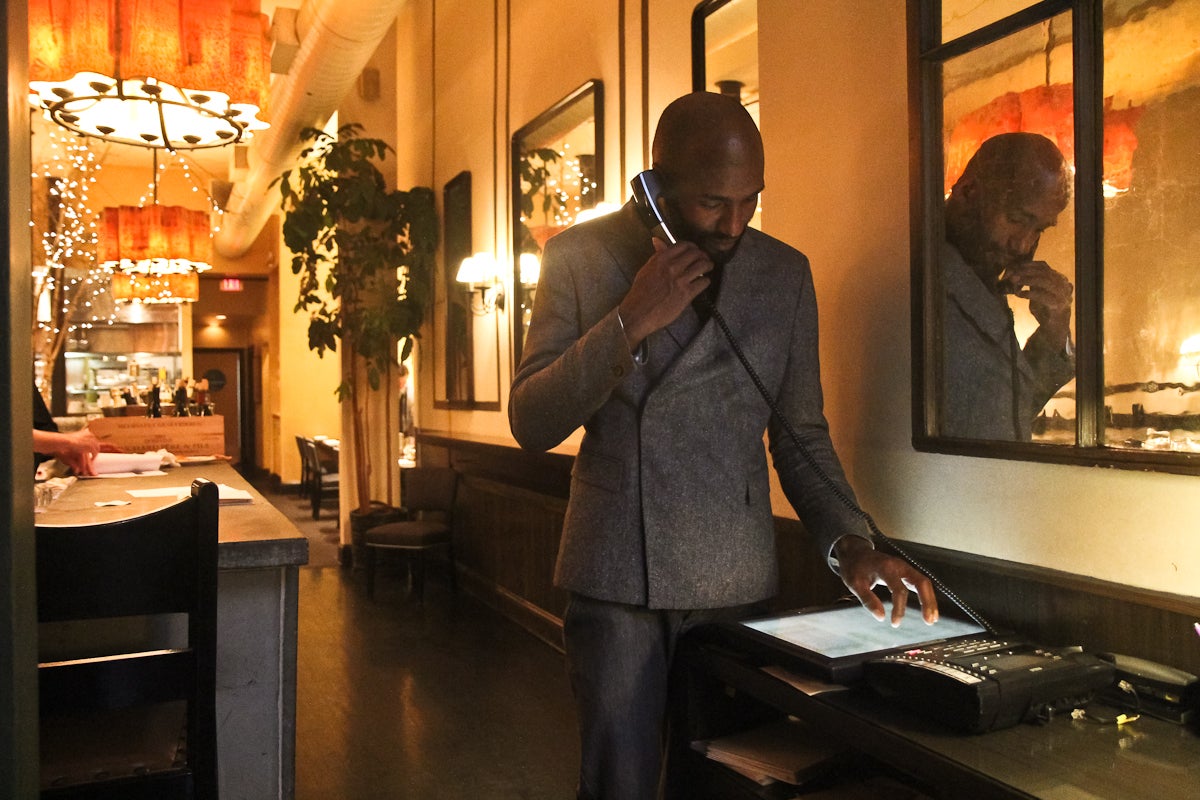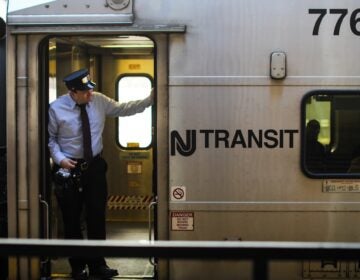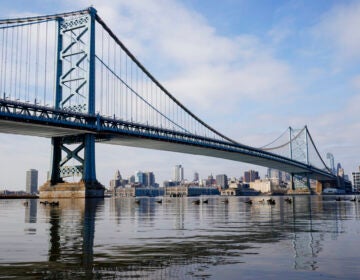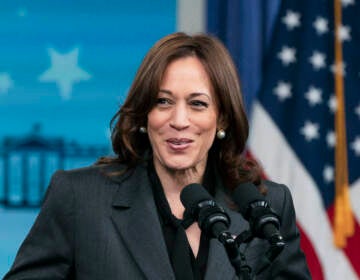Booking for a table for two in Philly? You may soon have to pay to play

(Kim Paynter/WHYY)
A new concierge service making its way through markets around the country aims to change the pace of the restaurant industry.
What do you do when a three-bell review has your favorite new restaurant all booked up? Do you book for next weekend and opt for fast casual? Or show up in hopes of a last-minute cancellation — and risk being left out in the cold?
What if you were willing to pay more? What if you could pay a premium and snag a reservation at a prime time?
A new concierge dining app called Reserve is offering just that. And it’s launching in cities around the country.
Pay to playReserve is already working with about 100 restaurants in total, spread out between Boston, New York and Los Angeles. According to CEO Greg Hong, the company’s started recon in Chicago, and D.C., with an eye on Philadelphia and London after that.
The Reserve iPhone app (Android is still in development) enables users to request a table for a window of time, gives them the opportunity to offer more money for the meal and a feature to pay the bill right from their phone, all for a $5 fee. The front of the house staff then responds to reservation requests in real time via iPad, through software built by Reserve.
“It really puts our restaurants back in control of the dining room,” said Hong. “They have the flexibility then to go about seating their dining room thoughtfully over the course of an evening.”
Say you wanted to go to dinner for a special occasion. Or maybe it’s just a really busy Friday night. Reserve offers the option to pay more for dinner, said Hong. “You, as a diner, might be able to express an interest that you’d pay, 10 percent, 20 percent more than menu prices, to come to a restaurant. And if the restaurant can accommodate, they can try to squeeze you in.”
Though Reserve is generally only seeing that in 1-2 percent of requests so far.
“I think, at its core, we want to make sure that diners are really well connected with restaurants, and we want to be the technology layer that lives between those two,” said Hong.
If prime pricing and pay-by-app services sounds vaguely familiar, it may be because here in Philly we’ve already embraced the concept. Garret Camp, co-founder of StumbleUpon and Uber, was Reserve’s lead investor.
The market share
When it comes to booking a table online in this city, Philly is a one-horse town.
OpenTable is the website/app diners use to book their reservations. For the user, it’s simple — pick the restaurant, choose the time and book. Some people may utilize the points system for free meals, and others may just use it for convenience. But, at the end of the day, it’s an app like any other.
For the restaurant, however, OpenTable is a clearing house for the night to come. Reservations made by phone, email and walk-ins are input into the OpenTable system, in addition to those who have booked directly online.
It serves as a library of guest requests and information, table times, and the number of people in the party … all of this is coordinated every service, helping owners get the ideal number of tables in and out, spread out properly throughout the night in an effort to maximize their dining room and smooth service for the kitchen.
“We currently seat 15 million diners per month at our restaurants, and we have about 32,000 restaurants that are using OpenTable,” said Scott Jampol, senior vice president of marketing at OpenTable.
In North America last year, about 19 percent of the reservations were booked online through Open Table, said Jampol who said city-specific information was not available.
The rest, he said, were booked by phone and walk-ins, leaving ample market share for continued growth.
Back in 1998 when the San Francisco-based OpenTable launched, the World Wide Web was still in its infancy. AOL sent CDs via mail, offering chat room options to desktop-using households.
By 2002, when OpenTable rolled out in Philly, it was one of those things, a new product. Do you need it? No — your paper and pen worked just fine. But 16 years after its appearance in the restaurant industry, it’s near impossible to avoid.
It’s more than just a booking app. Its a management service. And while it’s free to the diners, it costs the restaurants a pretty penny — or quarter, to be exact.
If diners book through the OpenTable-enabled restaurant website, it costs the restaurant 25 cents per person. If they book through OpenTable, it costs $1 per person. There’s also a subscription fee to use the management system and software.
Industry leaders
“When OpenTable first came to Philadelphia, of course, they approached us,” said Elle Yin, owner of Fork and High Street on Market. “I felt that we were so busy, why would I want to use OpenTable and give up $1 a reservation to OpenTable?”
While she thought it was a good idea, Yin didn’t anticipate so many people signing on or that so many people would be making reservations through the service. In 2007, she took the leap.
“We finally joined it because I thought if you weren’t on the OpenTable site, you would be losing customers,” she said. “Now it’s essential, you have no choice.”
But in a society that values the free market, competition and the bottom line, OpenTable is still the only option.
So far competitors have had a tough go breaking into the scene.
Like CityEats. They offered a comparable service and system. But everyone had already gone in with OpenTable. And to incorporate multiple platforms into the daily workflow was cumbersome.
“CityEats came to Philadelphia a few years ago,” said Yin. “I didn’t see how they would be able to replace the seats that we were getting from OpenTable. How do you give four tables up to one system and book tables as you have before, when reservations are coming in through email, through phone … it just becomes really complicated.”
After a delayed rollout and minimal interest, CityEats packed it in. The site is now closed, and the Scripps-based venture now defunct.
So where does that leave the competition?
Innovating, hopefully.
OpenTable recently launched a pay-by-app feature, allowing diners to skip the bill and pay by phone.
Reserve is plotting its way across the country, and diners are primed to download the next new app, for better or for worse.
As for the restaurateurs, the managers and the hostesses? They’re left with a system designed soley for one product, unable to integrate the other web models, which are making their way into market. Layer upon layer of online options are leading to a congestion of sorts in the reservation pipeline.
“The challenge for us as a high-end/higher-end restaurant is to be able to manage our reservation system to coordinate with our operations,” said Yin. “And that’s the only thing, that it’s difficult through a system that is so broadly used from any casual eatery to a high-end restaurant. Of course, everything can be adapted. But for us, figuring that out and making that system unique to what we do is the challenge.”
Editor’s note: This story has been updated. An earlier version stated incorrectly that reservations were booked through a different platform.
WHYY is your source for fact-based, in-depth journalism and information. As a nonprofit organization, we rely on financial support from readers like you. Please give today.




